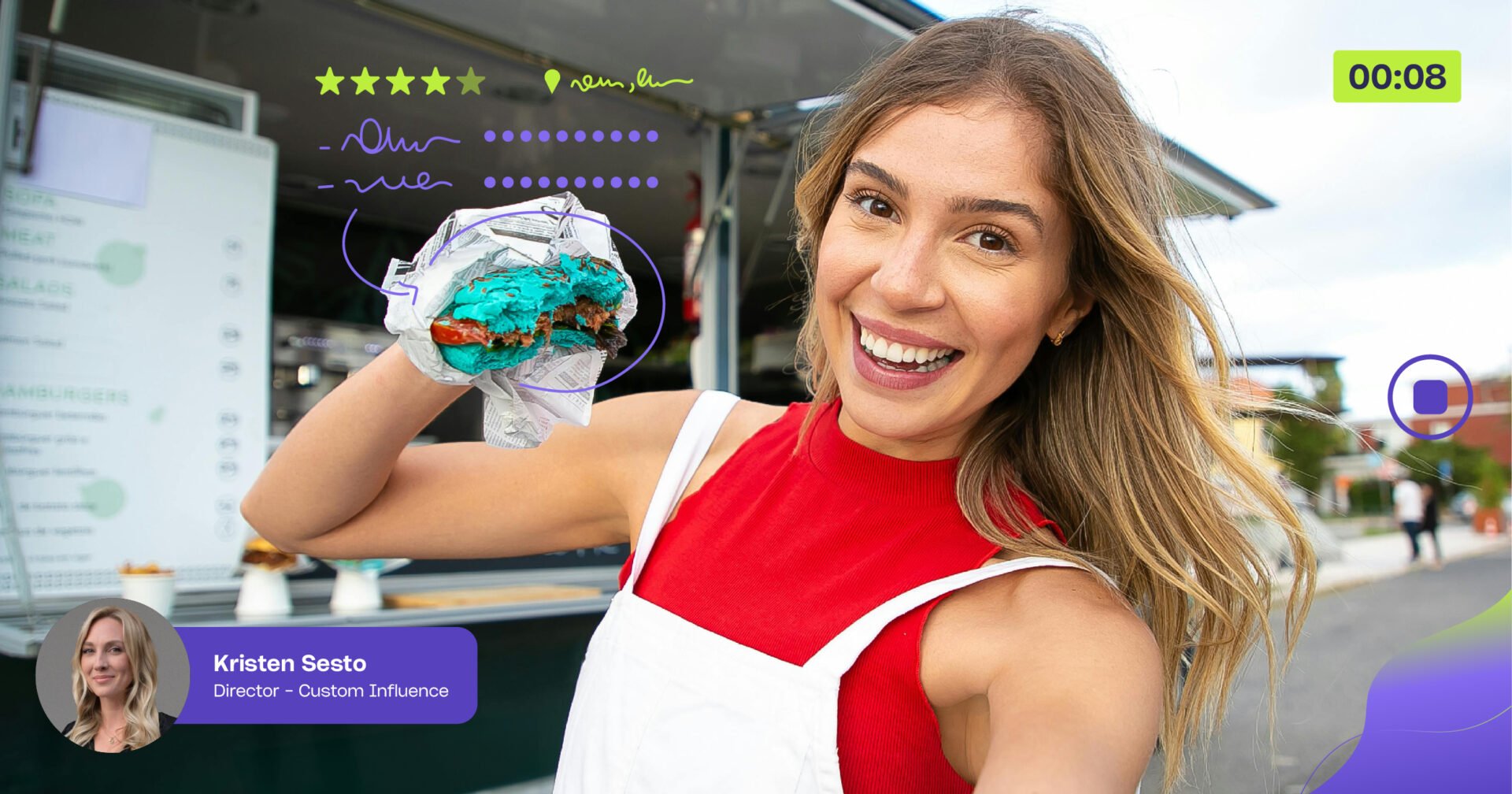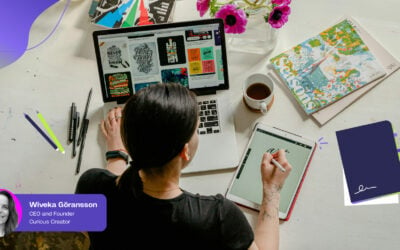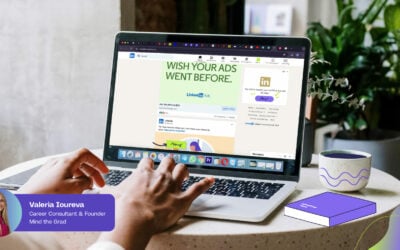
As the world evolves at a breakneck pace, be it due to technological advancements, politics or shifting economic landscapes, young professionals face the critical decision of choosing their career paths with some uncertainty. Will they be able to find their spot in the chaos and will they be able to build a successful career? The good news is that wherever there’s a massive force of change, it leaves behind pockets of potential. In this context, the potential lies in emerging industries.
We sat down with Kristen Sesto, Director at Custom Influence, a B2B influencer marketing agency taking influencer marketing to the next level, to dive into why the younger generation should look out for nascent industries.
Understanding the needs of young professionals
Following the well-known roads in established industries might soon become a thing of the past thanks to Gen-Z. As a generation that’s known to be highly empathetic and people-focused, Gen-Zs tend to struggle with the usual traditional maze of corporate culture. Instead, they’re changing things (for better or worse).
In his Forbes article on how Gen-Z is changing work culture, Ethan McCarty stated: “Despite their place at the beginning of their careers, Gen Z has already experienced burnout, both in school and the workplace, as a result of the pandemic. Working models vary depending on your company’s industry, size and location, but COVID-19 has shown us that we can make anything possible in order to stay in business, and listening to all employees about what works for them is paramount.”
We’ve already seen the drastic impacts of the pandemic on a generation of mostly schoolchildren—and many of them are entering the workforce without having had the opportunity to experience in-office work culture from the get-go.
Understanding this generation, who will inevitably inherit the world in the coming years, has left many employers at a loss but this isn’t a new phenomenon. Older generations have continuously found the younger ones difficult to understand or work with, as Amanda Ruggeri helpfully showcased in this hilarious compilation from 2017.
While there are tons of guides about the various characteristics of Gen-Z in the workplace and how to recognise patterns or cater to them, at the end of the day, young people are unpredictable. Today, Gen-Z is confusing; tomorrow, Gen Alpha will have us scratching our heads.
Yet these concerns aren’t the biggest challenge the younger generations face. As experts relay prediction after prediction of a rise in global unemployment rates in 2024, one thing is clear: building a sustainable and successful career will require new strategies.
But what should they do? Do they opt for more forgiving fields with higher chances of securing the job or do they go for the more gruelling, in-demand options? If neither sounds tempting, there’s a secret third option: emerging industries from previously unexplored niches with untapped potential.
Emerging industries in a changing landscape
The allure of emerging industries—or in this case, emerging niches—is that they promise innovation, rapid growth, and unique opportunities. For example, let’s say that the Pink Sauce TikTok drama led to a sudden boom in demand for packaged multicoloured fruity sauces. Suddenly, everyone’s got a shot at introducing something new and exciting to the mix—especially when the bowl’s still empty.
To put it simply, there’s more room for innovation in areas that are infrequently explored or completely undiscovered.
These little areas hold the potential to grow beyond their initial boundaries and shape the future of work, while also providing significant benefits for the youth who venture into them. This, coupled with fears over automation and job loss, could lead to more inconspicuous market segments—a dream come true for a generation as creatively entrepreneurial as Gen-Z.
Many emerging roles often lie dormant within industries that didn’t exist a decade or two ago—including popular ones, such as social media marketing. These sectors began to thrive because creative individuals and companies found a way to use social media to benefit their businesses. This, in turn, changed the entire social media landscape, leading to a proliferation of various social media-related roles and platforms adopting features specifically to cater to businesses.
So, how can younger generations make these niches work for them? Kristen’s venture into B2B influencer marketing is a perfect example. Here are the key takeaways from our conversation.
Kristen’s journey
When Kristen entered the B2B influencer marketing space, it wasn’t a pre-planned, clearcut path.
“My degree is in international business and marketing and I was lucky enough to actually get a job doing international business and marketing straight out of university. But I’ve always worked in new and emerging tech. So, my first job was in a data centre and through that opportunity, I was introduced to advertising technology companies which at the time were buying up a lot of data centre space. So in 2011, the explosion of ad tech and social media was happening and I started my career there.”
Since then, after over 13 years since moving to London, Kristen accumulated a significant amount of experience in B2B and B2C marketing.
Having worked at well-known companies, including Virgin Media and Oracle, and an extensive portfolio, Kristen began to wonder, “What’s the next step for me?” That’s when she decided to enter the startup world and joined Custom Influence.
What is B2B influencer marketing?
As a relatively new and still-evolving field, B2B influencer marketing has much to show the world. It involves partnering with industry experts, thought leaders, or influential individuals within various business sectors.
“B2B influencer marketing is really just the partnership with brands that work business to business. So that could be anything from construction companies to software companies to companies in health tech, fintech, all the techs. It’s a social media-first approach to thought leadership,” Kristen explained.
As a niche industry that leverages the power of social media and influential personalities to market products and services to businesses, it’s a sector that was virtually non-existent a decade ago. Thanks to the rise of influencer culture, fuelled greatly by Instagram and TikTok, it is slowly becoming a critical component of many companies’ marketing strategies today.
It’s important to note that B2B and B2B influencer marketing are different in many ways, which informs the strategies they need. Here’s Kristen’s helpful breakdown to distinguish between them:
- B2B influencers are usually professionals with substantial experience and recognition in their industry rather than social media celebrities.
- The audience and communities for B2B influencers tend to be smaller and more specialised compared to the large, general audiences in B2C influencer marketing.
- The content produced in B2B influencer partnerships is often educational and informative, such as research papers, ebooks, webinars, and industry insights, rather than promotional or entertainment-focused content.
- B2B sales cycles are typically longer, and influencer partnerships aim to build long-term relationships, drive awareness, and educate potential customers rather than prompt immediate purchases.
Make sure your skills are up for it
For young professionals, entering emerging industries like B2B influencer marketing offers numerous benefits. One of the primary attractions of new industries is the potential for rapid career advancement. Unlike traditional sectors, which often have well-established hierarchies and slower progression, emerging industries can offer more dynamic and flexible career paths.
This is partly due to the high demand for specialised skills that are in short supply. Young professionals who acquire expertise in these areas can quickly become valuable assets, often finding themselves in senior positions much sooner than they would in more established fields. In addition to this, knowing how to identify and utilise transferable skills can be a huge advantage.
“I believe every job has transferable skills. You can find a dotted line to where you want to get to from where you are if you look hard enough … You may not have all of the skills that are outlined or the experience but try to figure out where there’s common ground that you could build and work off of between what you’re doing now and where you want to get to,” Kristen advised.
You need to strike a balance
While the allure of new industries is strong, it’s essential to approach them with a balanced perspective. Continuous learning and adaptability are crucial in these fields, so you will need to stay tuned in to any new developments and be quick with the upskilling. Conduct thorough research and seek mentorship to help mitigate some of the risk associated with entering a less established field.
“Don’t be afraid to send a cold message and be pretty relentless. If you want to move into a different industry or a different space, go on LinkedIn, message people, figure out if there’s some side project that you could do for them. Maybe you don’t want a whole role; just say, ‘I really want to get into this industry, I need more experience’.”
If you’re feeling like you’re losing your hold on it, Kristen has a helpful tip for you, “Adopting a ‘fake it till you make it’ mindset can be beneficial, but it’s important to recognise your limits and not venture too far beyond your expertise.”
If you’re looking to kick off your career the right way this year, book a call with us. Let’s talk about it! You can also subscribe to our newsletter for the latest career information, tips, and updates. (They’re both completely free!)



